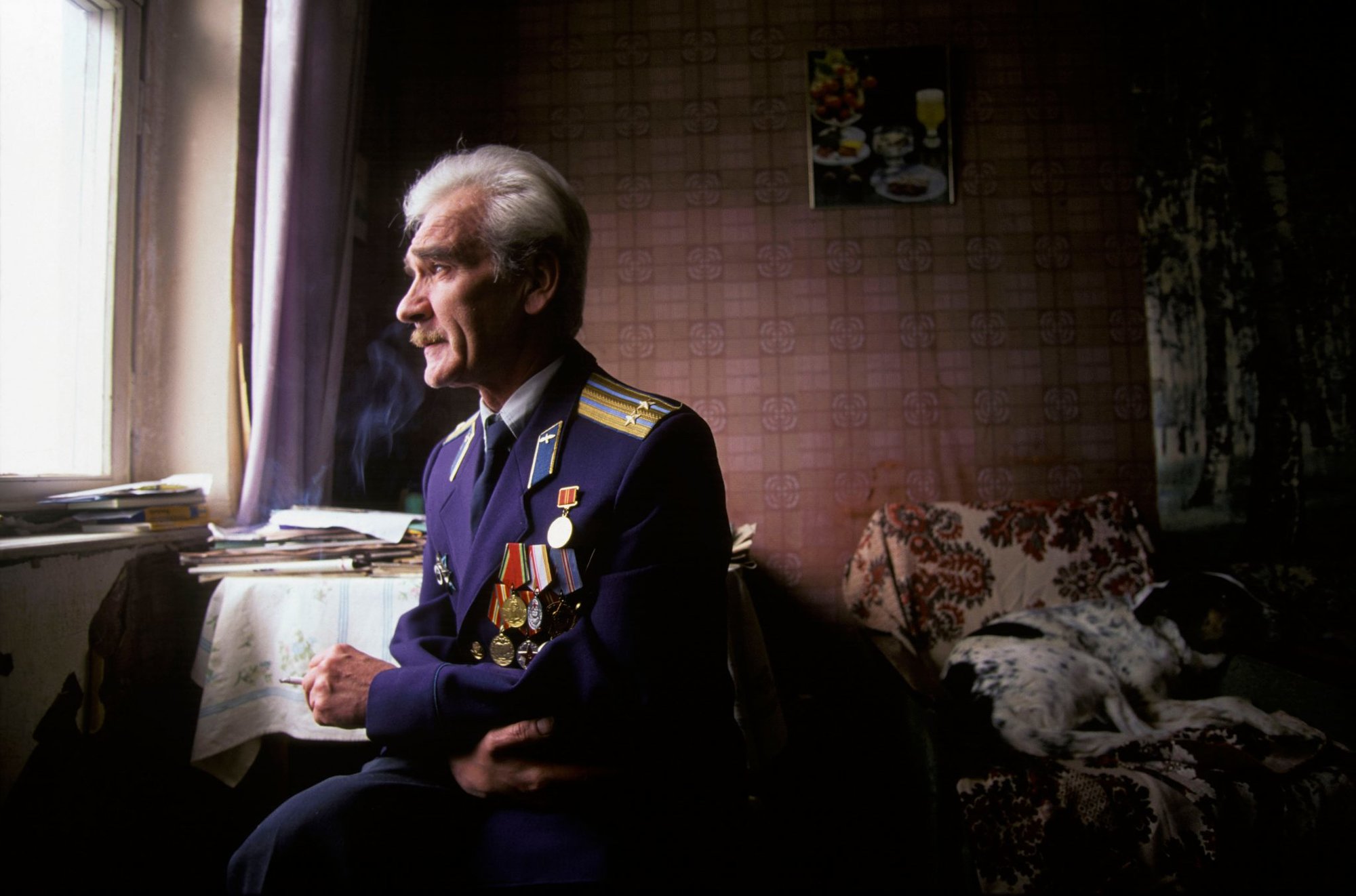Stanislav Petrov: The Man Who Saved the World From a Nuclear Holocaust

Stanislav Petrov. Photo by Nikolai Ignatiev/Alamy Stock photo.
On the morning of Sept. 26, 1983, Stanislav Petrov saved the world from a potential nuclear holocaust.
A few hours into the overnight shift at Serpukhov-15, a secret command center about 75 miles south of Moscow where the Soviet Union’s military monitored its nuclear early-warning systems, the 44-year-old lieutenant colonel made a momentous decision.
“The siren howled, but I just sat there for a few seconds, staring at the big, back-lit, red screen with the word ‘launch’ on it,” Petrov told BBC in 2013. “A minute later the siren went off again. The second missile was launched. Then the third, and the fourth, and the fifth. Computers changed their alerts from ‘launch’ to ‘missile strike.’”
Five Minuteman intercontinental ballistic missiles were inbound from the United States — or so the early-warning systems showed — and Petrov had to inform his higher command without delay.
Only three weeks earlier, the Soviet military had shot down Korean Airlines Flight 007, killing almost 300 people, including a US congressman. President Ronald Reagan had just publicly announced his new missile defense program. Tensions between the United States and Russia only heightened, and both kept their nuclear arsenal on high alert, ready to launch missiles within minutes.
Frozen, Petrov knew if he reached for the phone with a direct line to senior Soviet military commanders, a preemptive counterstrike would soon follow. He raised the phone — but called the Soviet army’s headquarters instead to report a system malfunction.
Although at the time he was 50-50 on whether an attack was real or not, he had guessed correctly.
“Twenty-three minutes later I realised that nothing had happened,” he said, smiling as he retold the events to the BBC. “If there had been a real strike, then I would already know about it. It was such a relief.”
A few days after he had regained his composure, he received an official reprimand. It wasn’t for his actions, however, but for mistakes in the logbook. Petrov kept the incident a secret from the public for 10 years because he was embarrassed that the Soviet Union’s systems could fail in such tremendous circumstances. When the Soviet Union collapsed, Petrov was awarded several international awards, including the Dresden Peace Prize. Petrov died in 2017. He was 77.
Read Next:

Matt Fratus is a history staff writer for Coffee or Die. He prides himself on uncovering the most fascinating tales of history by sharing them through any means of engaging storytelling. He writes for his micro-blog @LateNightHistory on Instagram, where he shares the story behind the image. He is also the host of the Late Night History podcast. When not writing about history, Matt enjoys volunteering for One More Wave and rooting for Boston sports teams.
BRCC and Bad Moon Print Press team up for an exclusive, limited-edition T-shirt design!
BRCC partners with Team Room Design for an exclusive T-shirt release!
Thirty Seconds Out has partnered with BRCC for an exclusive shirt design invoking the God of Winter.
Lucas O'Hara of Grizzly Forge has teamed up with BRCC for a badass, exclusive Shirt Club T-shirt design featuring his most popular knife and tiomahawk.
Coffee or Die sits down with one of the graphic designers behind Black Rifle Coffee's signature look and vibe.
Biden will award the Medal of Honor to a Vietnam War Army helicopter pilot who risked his life to save a reconnaissance team from almost certain death.
Ever wonder how much Jack Mandaville would f*ck sh*t up if he went back in time? The American Revolution didn't even see him coming.
A nearly 200-year-old West Point time capsule that at first appeared to yield little more than dust contains hidden treasure, the US Military Academy said.












